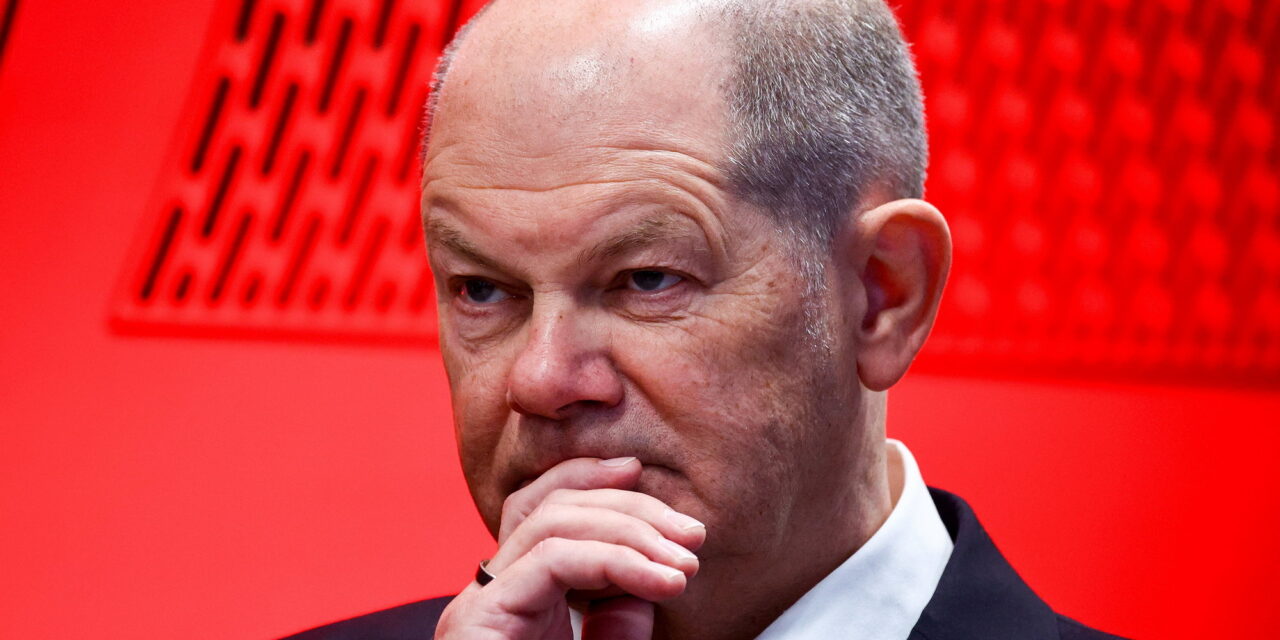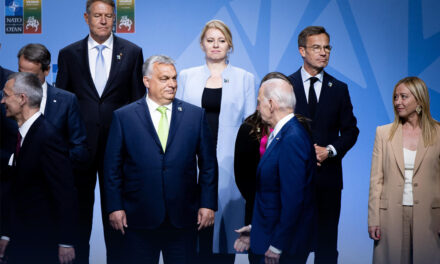As a bonus, along with the fall of their government.
Germans put 11 percent of their salaries in a can in the first half of the year, even though inflation is fine and real wages are constantly increasing. The decrease causes a loss of 34 billion euros in the economy.
***
There is something wrong with the consumerism of German citizens. He doesn't want to hang around and wriggle out from under the frog's bottom, even though, in theory, all the conditions were there for him to break records.
If the consumers in the first half of the year spend their saved money as well as in the golden times and use it for themselves, they would have been able to expand their country's economy by 0.7 percent instead of 0.2 percent. But citizens cannot be dissuaded from storing their money in virtual or literal mason jars. As reported by the leading economic paper, Handelsblatt :
in the first half of 2024, Germans saved 11.1 percent of their income for better times, and this causes a loss of 33.8 billion euros for the economy. And yet - from an economic point of view - everything would be given for the growth of consumption: inflation has been brought down from the record-high 9 percent to around the coveted 2 percent, and real wages are rising for the fifth quarter in a row.
Everything is good, but nothing is good
Consumer uncertainty has several components. The energy crisis that erupted immediately after the Covid epidemic, the fall of the government, and even the return of Donald Trump (the possible effects of his presidency on German exports) made citizens suspicious and pessimistic about the medium-term future vision. The near-collapse state of German industry, which has always been considered a stable foundation, the large number of bankruptcy filings, and above all the accompanying huge wave of layoffs only strengthened the fears. The German labor market is under enormous pressure:
in October, the number of registered unemployed was 2.8 million, which represents a seven percent increase compared to the previous year.
In order to reduce overheads, industrial companies are introducing shorter working hours in increasing numbers, the number of workers in this way has increased by 40 percent in one year, which also strengthens the feeling of insecurity.
Adding to this is the fact that the lightning-fast inflation caused a shock in German society that they were not used to at all, so even though it was managed to reduce it to a healthy level, customers still insist on saving. Some analysts also point out that consumers did not perceive the price increase selectively: although there are segments of the consumption areas where prices have only increased slightly, these are overshadowed by those where, however, they are much more severe - consumers only see the big picture, so for a while after that they don't want to spend anywhere. In other words, the mood is much worse than it could be based on the situation - this is also supported by the survey, which revealed that most Germans estimate this year's inflation to be much higher (up to 2 percent) than it actually is.
You have to eat, that's all
According to the surveys, there is only one area where Germans are willing to change their new Scottish habits: 19 percent of consumers want to spend more money on food in the coming months. In all other areas, they insist on further savings. This rate is still low, and it is limited to household consumption only. Restaurants will continue to be in trouble: since the beginning of the year, their VAT liability has increased significantly, which meant an almost immediate, average six percent jump in prices. Accordingly, the majority of citizens prefer to dine at home and save the difference for even worse times.
But the same is the case with clothing products:
in the last five quarters (i.e. during the growth cycle of real wages), Germans spent much less on clothes, and according to the survey, they do not intend to change this habit for the time being.
By the way, this attitude developed during the Covid epidemic and the lockdowns: consumers realized then how unnecessary it is to constantly update their wardrobes, and the attitude remains strong to this day - the result, however, is the increasing financial difficulty of clothing manufacturers and retailers, more in this case (in addition to the rising production costs) means bankruptcy. The German furniture industry is not in a good position either. Due to the savings, the market expects a 7-10 percent decrease in sales by the end of the year, while 36 percent of the consumers surveyed decided that they do not want to spend their money on furniture in the foreseeable future.
The percentage of those who stubbornly resist the temptation to buy any luxury goods is higher, 45 percent.
The rejection mainly affects the entry-level brands, which could not recover from the shock caused by the epidemic, and are already forced to deal with another crisis and the drop in consumption - with less and less success.
Although the situation has improved compared to the low point in April 2022, and according to the economic analysis institute, Ifo, consumption will slowly and moderately (by 1.4 percent), but perhaps start to rise next year, this year's growth is only 0.3-0, Compared to last year, it can be increased to 4 percent, which means that consumption is almost stagnant when compared to economic performance. Trusting in the further reduction of inflation and the continuous growth of real wages, experts believe that there is a light at the end of the tunnel, but according to the skeptics, the savings mania will be experienced in German society for an even longer period of time.
Béla Ákos Mandiner Makronóm/Révész
Featured image: MTI/EPA/Filip Singer













